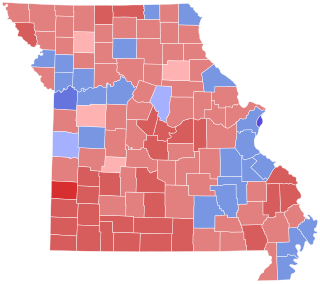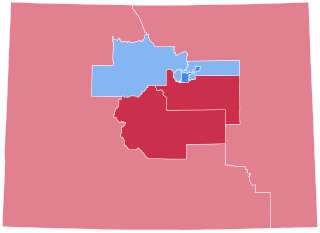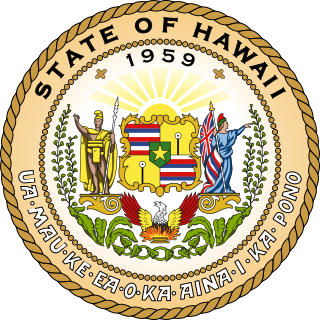| ||||||||||||||||||||||||||||||||||||||||||||
2 of the 435 seats in the U.S. House of Representatives 218 seats needed for a majority | ||||||||||||||||||||||||||||||||||||||||||||
|---|---|---|---|---|---|---|---|---|---|---|---|---|---|---|---|---|---|---|---|---|---|---|---|---|---|---|---|---|---|---|---|---|---|---|---|---|---|---|---|---|---|---|---|---|
| ||||||||||||||||||||||||||||||||||||||||||||
| ||||||||||||||||||||||||||||||||||||||||||||
There were two special elections to the United States House of Representatives in 2003 during the 108th United States Congress.
| ||||||||||||||||||||||||||||||||||||||||||||
2 of the 435 seats in the U.S. House of Representatives 218 seats needed for a majority | ||||||||||||||||||||||||||||||||||||||||||||
|---|---|---|---|---|---|---|---|---|---|---|---|---|---|---|---|---|---|---|---|---|---|---|---|---|---|---|---|---|---|---|---|---|---|---|---|---|---|---|---|---|---|---|---|---|
| ||||||||||||||||||||||||||||||||||||||||||||
| ||||||||||||||||||||||||||||||||||||||||||||
There were two special elections to the United States House of Representatives in 2003 during the 108th United States Congress.
Elections are listed by date and district.
| District | Incumbent | This race | |||
|---|---|---|---|---|---|
| Representative | Party | First elected | Results | Candidates | |
| Hawaii 2 | Ed Case | Democratic | 2002 (Special) | Member-elect Patsy Mink (D) died September 28, 2002, but was posthumously elected to the 108th Congress. Ed Case had won a special election for the seat in the 107th Congress November 30, 2002, but not for the 108th Congress. Incumbent re-elected January 4, 2003. |
|
| Texas 19 | Larry Combest | Republican | 1984 | Incumbent resigned May 31, 2003 for personal reasons. New member elected June 3, 2003, in a run-off vote. Republican hold. |
|

Incumbent Democrat Patsy Mink died on September 28, 2002 due to viral pneumonia as a result of complications from chickenpox. By the time of her death, it had been too late to remove her from the general election ballot. Thus, on November 5, Mink was post-humously re-elected.
A special election was held on November 30, 2002 to fill out the remainder of her term, with Democrat Ed Case winning the election.
Another election, this time to for the 108th Congress was held on January 4, 2003 with incumbent Ed Case running for re-election, along with 3 dozen other candidates including Democrat state Senators Matt Matsunaga and Colleen Hanabusa, Republican state Representatives Barbara Marumoto and Bob McDermott, John Carroll, and former Mayor of Honolulu Frank Fasi.
Incumbent Ed Case won re-election with 44% of the vote.
| Party | Candidate | Votes | % | |
|---|---|---|---|---|
| Democratic | Ed Case (incumbent) | 33,002 | 43.67 | |
| Democratic | Matt Matsunaga | 23,050 | 30.50 | |
| Democratic | Colleen Hanabusa | 6,046 | 8.00 | |
| Republican | Barbara Marumoto | 4,497 | 5.95 | |
| Republican | Bob C. McDermott | 4,298 | 5.69 | |
| Republican | Chris Halford | 728 | 0.96 | |
| Republican | Kimo Kaloi | 642 | 0.85 | |
| Republican | John S. Carroll | 521 | 0.69 | |
| Republican | Frank Fasi | 483 | 0.64 | |
| Nonpartisan | Mark McNett | 449 | 0.59 | |
| Republican | Jim Rath | 414 | 0.55 | |
| Republican | Richard Haake | 212 | 0.28 | |
| Republican | Nelson Secretario | 208 | 0.28 | |
| Republican | Whitney Anderson | 201 | 0.27 | |
| Nonpartisan | Ron Jacobs | 91 | 0.12 | |
| Green | Nick Nikhilananda | 75 | 0.10 | |
| Democratic | Brian G. Cole | 69 | 0.09 | |
| Democratic | Kekoa David Kaapu | 68 | 0.09 | |
| Libertarian | Jeff Mallan | 58 | 0.08 | |
| Nonpartisan | Sophie Mataafa | 52 | 0.07 | |
| Republican | Doug Fairhurst | 38 | 0.05 | |
| Democratic | Michael Gagne | 35 | 0.05 | |
| Republican | Carolyn Martinez Golojuch | 29 | 0.04 | |
| Green | Gregory Goodwin | 27 | 0.04 | |
| Republican | Rich Payne | 25 | 0.03 | |
| Republican | Clarence Weatherwax | 25 | 0.03 | |
| Nonpartisan | Kabba Anand | 24 | 0.03 | |
| Nonpartisan | Dan Vierra | 22 | 0.03 | |
| Republican | John Sabey | 20 | 0.03 | |
| Democratic | Pat Rocco | 19 | 0.03 | |
| Nonpartisan | Bill Russell | 18 | 0.02 | |
| Nonpartisan | Steve Sparks | 17 | 0.02 | |
| Nonpartisan | Solomon Wong | 16 | 0.02 | |
| Democratic | Art Reyes | 15 | 0.02 | |
| Democratic | Paul Britos | 13 | 0.02 | |
| Nonpartisan | S.J. Harlan | 11 | 0.01 | |
| Democratic | Charles Collins | 10 | 0.01 | |
| Nonpartisan | Jack Randall | 9 | 0.01 | |
| Democratic | Steve Tataii | 9 | 0.01 | |
| Nonpartisan | Marshall Turner | 8 | 0.01 | |
| Republican | Mike Rethman | 8 | 0.01 | |
| Democratic | Herbert Jensen | 6 | 0.01 | |
| Nonpartisan | Alan Gano | 3 | 0.01 | |
| Nonpartisan | Bartle Rowland | 3 | 0.01 | |
| Total votes | 76,328 | 100.00 | ||
| Democratic hold | ||||

Incumbent Republican Larry Combest announced his resignation on November 12, 2002 following the deaths of his father and one of his daughters, and officially resigned on May 31, 2003.
A nonpartisan special primary was held on May 3, 2003.
| Party | Candidate | Votes | % | |
|---|---|---|---|---|
| Republican | Randy Neugebauer | 13,091 | 22.42 | |
| Republican | Mike Conaway | 12,270 | 21.02 | |
| Republican | Carl Isett | 11,015 | 18.87 | |
| Republican | David Langston | 8,053 | 13.79 | |
| Republican | Stace Williams | 2,609 | 4.46 | |
| Republican | Vickie Sutton | 1,987 | 3.40 | |
| Republican | Jamie Berryhill Jr. | 1,907 | 3.26 | |
| Republican | John D. Bell | 1,883 | 3.22 | |
| Democratic | Kaye Gaddy | 1,396 | 2.39 | |
| Republican | Richard Bartlett | 1,046 | 1.79 | |
| Republican | Bill Christian | 1,029 | 1.76 | |
| Democratic | Jerri Simmons-Asmussen | 898 | 1.53 | |
| Republican | Donald May | 629 | 1.07 | |
| Green | Julia Penelope | 223 | 0.38 | |
| Libertarian | Chip Peterson | 159 | 0.27 | |
| Constitution | Thomas Flournoy | 93 | 0.15 | |
| Independent | Ed Hicks | 81 | 0.13 | |
| Total votes | 58,369 | 100 | ||
As no candidates received over 50% of the vote, the two candidates with the most votes, Randy Neugebauer and Mike Conaway moved to a run-off held on June 3. Neugebauer narrowly won the election, with 50.52% of the vote.
| Party | Candidate | Votes | % | |
|---|---|---|---|---|
| Republican | Randy Neugebauer | 28,546 | 50.52 | |
| Republican | Mike Conaway | 27,959 | 49.48 | |
| Total votes | 56,505 | 100.00 | ||
| Republican hold | ||||

The 2004 United States House of Representatives elections were held on November 2, 2004, to elect all 435 seats of the chamber. It coincided with the re-election of President George W. Bush as well as many Senate elections and gubernatorial elections. Prior to the election in the 108th Congress, Republicans held 227 seats, Democrats held 205, with two Republican vacancies and one independent. As a result of this election, the 109th Congress began composed of 232 Republicans, 201 Democrats, one independent, and one vacancy.

Edward Espenett Case is an American lawyer and Democratic politician. Since 2019, he has served as the U.S. representative for Hawaii's 1st congressional district, which covers the urban core of Honolulu. He represented the 2nd district, which covers the rest of the state, from 2002 to 2007.

The 2002 United States Senate elections featured a series of fiercely contested elections that resulted in a victory for the Republican Party, which gained two seats and thus a narrow majority from the Democratic Party in the United States Senate. The Senate seats up for election, known as class 2 Senate seats, were last up for regular election in 1996. The election cycle was held on November 5, 2002, almost fourteen months after the September 11, 2001 attacks.

The 1998 United States Senate elections were held on November 3, with the 34 seats of Class 3 contested in regular elections. This was seen as an even contest between the Republican Party and Democratic Party. While the Democrats had to defend more seats up for election, Republican attacks on the morality of President Bill Clinton failed to connect with voters and anticipated Republican gains did not materialize. The Republicans picked up open seats in Ohio and Kentucky and narrowly defeated Democratic incumbent Carol Moseley Braun, but these were cancelled out by the Democrats' gain of an open seat in Indiana and defeats of Republican Senators Al D'Amato and Lauch Faircloth. The balance of the Senate remained unchanged at 55–45 in favor of the Republicans.

The 1960 United States Senate elections coincided with the election of John F. Kennedy as president on November 8, 1960. The 33 seats of Class 2 were contested in regular elections. A special election was also held on June 28, 1960, for a mid-term vacancy in North Dakota where Democrats flipped a seat to expand their majority to 66–34. As Majority Leader Lyndon Johnson was elected Vice President, Mike Mansfield became the new majority leader.

The 1944 United States Senate elections coincided with the re-election of Franklin D. Roosevelt to his fourth term as president. The 32 seats of Class 3 were contested in regular elections, and three special elections were held to fill vacancies.

The 2002 United States House of Representatives elections were held on November 5, 2002, in the middle of President George Walker Bush's first term, to elect U.S. Representatives to serve in the 108th United States Congress. This was the first congressional election using districts drawn up during the 2000 United States redistricting cycle on the basis of the 2000 census.

The 2006 United States House of Representatives elections in Ohio were held on Tuesday, November 7, 2006 to elect the 18 U.S. representatives from the state of Ohio, one from each of the state's 18 congressional districts. The elections coincided with the elections of other federal and state offices, including a gubernatorial election.

The 2002 United States Special Senate election in Missouri was held on November 5, 2002 to decide who would serve the rest of Democrat Mel Carnahan's term, after he died while campaigning and posthumously won the 2000 election. The winner would serve the remainder of the term ending in 2007. Governor Roger Wilson appointed Carnahan's wife Jean, also a Democrat, to serve temporarily. She then decided to run to serve the remainder of the term, but she was narrowly defeated by Republican nominee Jim Talent.

The 2010 United States House of Representatives elections in Oregon were held on November 2, 2010, to determine who would represent the state of Oregon in the United States House of Representatives. Oregon has five seats in the House, apportioned according to the 2000 United States census. All five incumbents, four Democrats and one Republican, were re-elected to another term. Representatives were elected for two-year terms to serve in the 112th Congress from January 3, 2011 until January 3, 2013; however, re-elected Congressman David Wu resigned partway through his term on August 3, 2011, and a special election was held to fill the rest of his unexpired term.

The 2010 U.S. congressional elections in Texas were held on November 2, 2010, to determine who will represent the state of Texas in the United States House of Representatives. Representatives are elected for two-year terms; those elected served in the 112th Congress from January 2011 until January 2013.

The 2010 congressional elections in Colorado were held on November 2, 2010 to determine who will represent the state of Colorado in the United States House of Representatives. Representatives are elected for two-year terms; those elected will serve in the 112th Congress.

The 2004 United States House of Representatives Elections in Florida were held on November 2, 2004 to determine who would represent the state of Florida in the United States House of Representatives. Representatives are elected for two-year terms; those elected served in the 109th Congress from January 3, 2005 to January 3, 2007. The election coincided with the 2004 U.S. presidential election as well as an election to the United States Senate.

There were two United States House of Representatives special elections in Hawaii's 2nd congressional district within 35 days of each other to select the successor to Democrat Patsy Mink who had died from pneumonia. The elections, held November 30, 2002, and January 4, 2003, were officially nonpartisan and each held as general elections without primaries to pick a successor for the remainder of her term in the 107th Congress and for the next term in the 108th Congress, to which Mink was posthumously re-elected. Both elections were won by Democrat Ed Case.

The 2004 congressional elections in Arizona were elections for Arizona's delegation to the United States House of Representatives, which occurred along with congressional elections nationwide on November 2, 2004. Arizona has eight seats, as apportioned during the 2000 United States census. Republicans held six of the eight seats and Democrats held two. This would be the last time until 2022 that Republicans would win six House seats in Arizona.

The 2014 United States House of Representatives elections in Texas were held on Tuesday, November 4, 2014, to elect the 36 U.S. representatives from the state of Texas, one from each of the state's 36 congressional districts. The elections coincided with the elections of other federal and state offices, including a gubernatorial election and an election to the U.S. Senate.

The 2016 United States House of Representatives elections in Texas were held on November 8, 2016, to elect the 36 U.S. representatives from the state of Texas, one from each of the state's 36 congressional districts. The elections coincided with the 2016 presidential election, as well as other elections to the House of Representatives, elections to the United States Senate and various state and local elections. The primaries were held on March 1.

The 2016 United States House of Representatives elections in Connecticut were held on Tuesday, November 8, 2016 to elect the five U.S. representatives from the state of Connecticut, one from each of the state's five congressional districts. The elections coincided with the 2016 U.S. presidential election, as well as other elections to the House of Representatives, elections to the United States Senate and various state and local elections. The primaries were held on August 9.

The 2016 United States House of Representatives elections in Alabama were held on November 8, 2016, to elect the seven U.S. representatives from the state of Alabama, one from each of the state's seven congressional districts. The elections coincided with the 2016 U.S. presidential election, as well as other elections to the House of Representatives, elections to the United States Senate, and various state and local elections. The primaries were held on March 1.

The 2018 United States House of Representatives elections in Virginia were held on November 6, 2018, to elect the 11 U.S. representatives from the state of Virginia, one from each of the state's 11 congressional districts. The elections coincided with other states' elections to the House of Representatives, elections to the United States Senate and various state and local elections. Primary elections took place on June 12.
{{cite web}}: CS1 maint: archived copy as title (link)